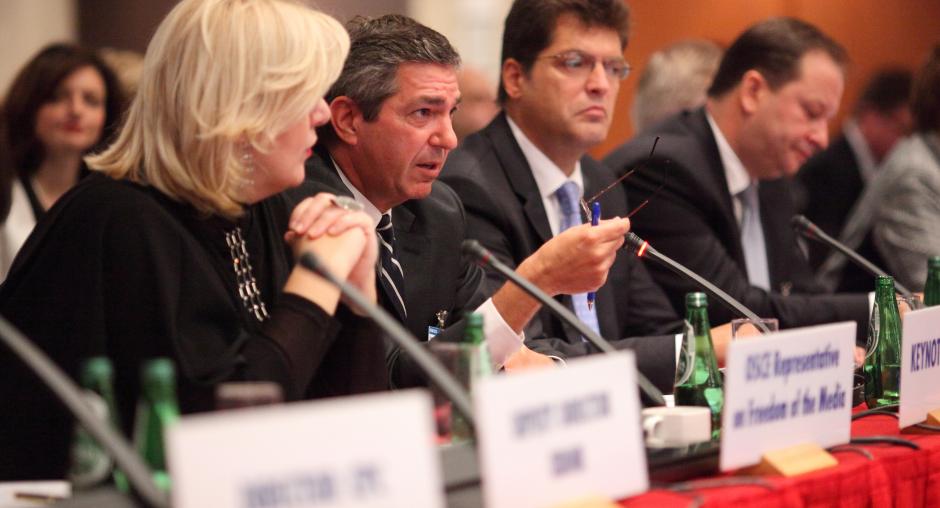Universal human rights central to security, say speakers at OSCE conference in Warsaw

WARSAW, 23 September 2013 – The universality of human rights has to be protected in order to provide for genuine security, speakers said at the opening of the OSCE Human Dimension Implementation Meeting in Warsaw today.
“The basic power of human rights resides in their universal nature, yet this universal nature has been questioned on the basis of notions of cultural relativism,” Stavros Lambrinidis, the EU Special Representative for Human Rights and former Greek Foreign Minister, said in his keynote address. He said these rights and individual security are directly connected: “Human rights have always been the universal voice of the powerless against the powerful.”
Ambassador Ihor Prokopchuk, Chairperson of the OSCE Permanent Council, in his address to the meeting, stressed that such universal human rights are also vital to broader security.
“Respect for and promotion of democracy, human rights, fundamental freedoms and the rule of law are cornerstones of stability and security in Europe and beyond,” Prokopchuk said. “The broad concept of comprehensive security would remain hollow without the promotion and protection of human rights as its essential elements.”
The event, which this year celebrates its 20th anniversary, brings together some thousand government representatives, experts and human rights activists. During the two-week meeting they will review the progress states have made in putting their international commitments into practice.
“Twenty years have now passed since the implementation of the full range of OSCE human dimension commitments by the participating States was reviewed in this forum for the first time,” said Ambassador Janez Lenarčič, Director of the OSCE Office for Democratic Institutions and Human Rights. “Since then, the HDIM has become a well-established platform for peer review, self-reflection and dialogue on implementation of human rights commitments together with civil society and partners from other international organizations.”
In addition to regular working sessions, more than 60 side events will focus on specific human rights concerns and country situations. Special sessions on freedom of religion or belief, freedom of assembly and association, democratic elections and election observation will also take place.
